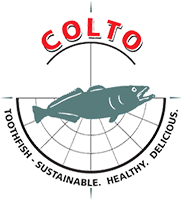Independent DNA tests on 240 random samples have shown that MSC certified fish continues to perform well in traceability tests. All of the samples showed that they came from the fish labelled on the pack and none of the products was mislabelled. These early results establish DNA analysis as a valuable tool in combating the fraudulent use of ecolabels. As a result, the MSC plans to expand the testing of species later this year.
The first DNA tests were developed for three species: Alaska salmon (Oncorhynchus sp.), Alaska pollock (Theragra chalcogramma) and South Georgia toothfish (Dissostichus eleginoides). Scientists took reference samples of these three species from MSC certified fisheries and analysed their DNA profiles. The team took samples from MSC-labelled products sold in four key markets (the USA, the UK, Germany and Japan) and compared their DNA profiles with those of the reference samples. All were found to be the species declared on the pack. In combination with product tracebacks, which, are also part of the MSC’s Traceability and Assurance in the Supply Chain (TASC) project, DNA tests help provide added assurance that only MSC-certified seafood is used in the final, labelled product.
DNA testing boosts consumer confidence
Evi Mateboer, MSC supply chain manager, said: “These results are very encouraging, not only for our existing partners but also for the future development of the sustainable fish market and those producers considering seeking MSC certification. Traceability is a very hot topic in the seafood industry: mislabelling is a recognised problem and undermines confidence in the supply chain. These tests confirm MSC chain of custody as a valid tool in ensuring only MSC certified fish is labelled as such.
“DNA analysis provides a positive identification of species, but it won’t, by itself, tell us that the product originates from a certified fishery. In combination with the rigorous traceability requirements demanded by our Chain of Custody standard, such testing gives consumers and stakeholders extra assurance that the product they are buying is correctly labelled. The DNA analysis project provides an additional means of helping our partners protect their significant investment in the MSC programme.”
MSC commitment to traceability
Rupert Howes, MSC chief executive, said: “As the momentum behind the MSC programme increases and market demand for MSC-certified products grows, so too does the incentive for fraudulent use of the MSC ecolabel. DNA testing helps build public confidence in product sourcing and labelling claims. Traceability is an essential business requirement and the MSC will continue to develop systems that help protect our partners’ investment, markets and reputation.”
The next phase of the DNA testing programme will assess more products containing Alaska salmon, Alaska pollock and South Georgia toothfish, and develop tests for a further four fish species: Pacific cod (Gadus macrocephalus), hake (Merluccius paradoxus and M. capensis), hoki (Macruronus novaezelandiae) and herring (Clupea harengus).
